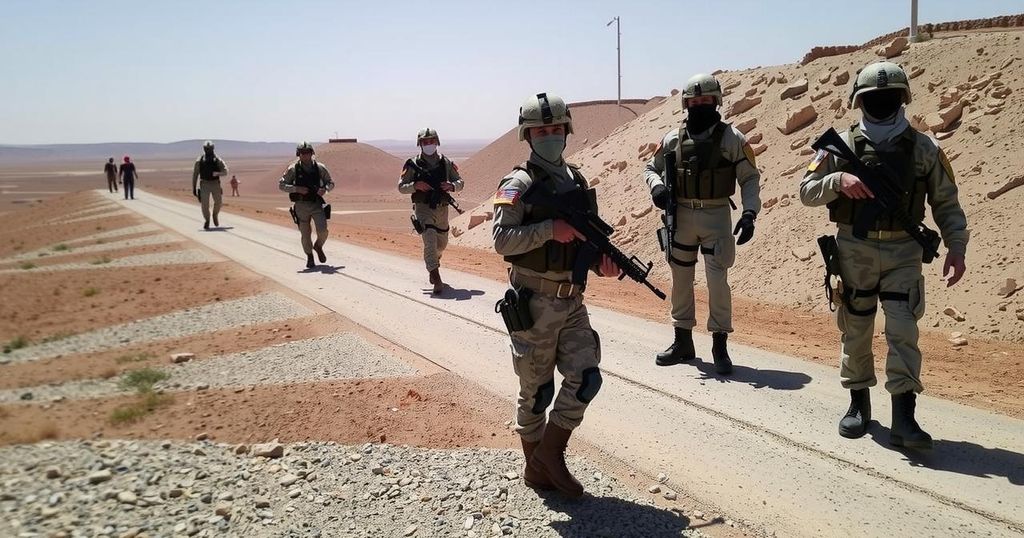Jordan has escalated military operations against Iranian-linked drug smuggling networks along its northern border with Syria. Following violent encounters with armed groups, Jordan’s military has engaged in airstrikes against drug production sites and intensified border control measures amidst rising concerns regarding Captagon trafficking, which poses significant national security threats.
Jordanian military forces have intensified their operations along the border with Syria to combat drug smuggling networks linked to Iranian-backed militias, notably Hezbollah. This strategic escalation follows violent encounters with armed groups attempting to penetrate Jordanian territory. Notably, on January 12, 2025, Jordanian border guards clashed with armed smugglers from Syria, confirming that these groups are supported by Iran’s regime, which utilizes drug and arms trafficking as part of its destabilization tactics in the region.
In response to these threats, Jordan has shifted its approach from diplomatic negotiations to direct military action, evidenced by airstrikes targeting drug production facilities in southern Syria. The Jordanian government has labeled these efforts as a “war on drugs,” reflecting a critical need for stronger border security amid rising concerns over Captagon, a potent amphetamine increasingly financing criminal organizations and militias.
Reports from multiple sources, including Reuters, have illustrated the connection between smuggling networks in southern Syria and Iranian proxy forces, including Hezbollah. These operations are allegedly coordinated by the Fourth Division of the Syrian Army, previously under the leadership of Maher al-Assad, which has played a pivotal role in drug trafficking. With the emergence of a new Syrian government, efforts to dismantle drug labs associated with the former regime have been implemented but continue to face challenges due to the extensive nature of the operations.
The integration of Iranian-backed militias into these drug trafficking schemes poses significant regional security threats, with Jordan and its Western allies accusing these groups of using southern Syria as a base for illicit trade aimed at destabilizing neighboring countries. A recent joint security agreement between Jordan and Syria has further strengthened the commitment to combat cross-border smuggling, resulting in numerous raids on drug manufacturing sites previously shielded by the Fourth Division.
Despite these initiatives, the intertwined nature of drug trafficking and militia activities represents persistent threats to national security. As a Jordanian military official articulated, “This is not just a border issue; it’s a national security imperative.” Jordan remains resolute in its fight against networks funded by Tehran to prevent further regional destabilization.
The escalation of Jordanian military operations against drug smuggling networks is a significant response to the ongoing security threats posed by Iranian-backed militias in the region. The trade of illicit drugs, particularly Captagon, has emerged as a critical funding source for these groups, promoting destabilization within neighboring states. This situation necessitates a comprehensive understanding of the relationship between drug trafficking operations and militia influence within Syria, emphasizing the urgent need for effective countermeasures by regional governments to safeguard national security.
In conclusion, Jordan’s intensified border operations against Iranian-linked drug smuggling networks underscore the urgent security challenges facing the region. The intricate connections between drug trafficking and militia activities pose substantial threats to Jordanian sovereignty and stability. As Jordan reinforces its military engagement and collaborates with the new Syrian government, the overarching goal remains clear: to dismantle these networks and mitigate the destabilizing influence facilitated by Iranian-backed militias in southern Syria.
Original Source: www.ncr-iran.org







